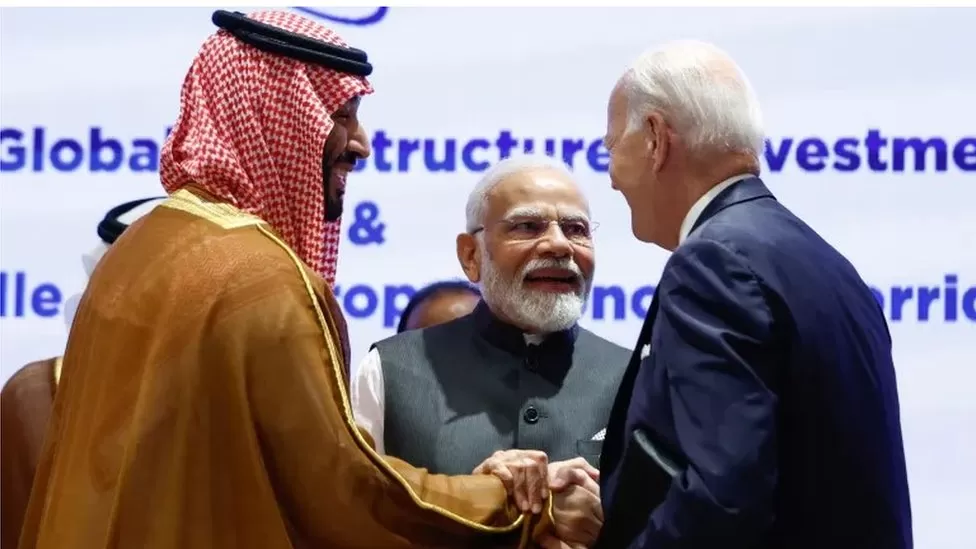Can India-Europe corridor rival China’s Belt and Road?

During the announcement of the India-Middle East-Europe Economic Corridor (IMEC), US President Joe Biden and Saudi Crown Prince Mohammed bin Salman upgraded their frosty relationship from an awkward fist bump to a firm handshake. (Biden once vowed to make Saudi Arabia a pariah state.)
While the project to enhance transportation and communication links between Europe and Asia through rail and shipping networks was beneficial to the region, it was also telling of American foreign policy. According to Ravi Agarwal, editor-in-chief of Foreign Policy magazine, this means anything that advances US interests against China.
According to Parag Khanna, author of Connectography, the project does not benefit America materially. Faced with growing Chinese expansionism, the US marked its diplomatic presence at the presidential country retreat by brokering a thaw in relations between the two pacific nations.
Many view the IMEC as a US counter to China’s Belt and Road Initiative (BRI), a global infrastructure-building project connecting Southeast Asia, Central Asia, Russia and Europe. As China’s economy slows down, some say the project’s grand ambitions have dwindled significantly. A number of countries, including Italy, have expressed their desire to withdraw, and others, such as Sri Lanka and Zambia, are unable to repay their debts.
The BRI has also been criticized for a number of other reasons, including its “underlying objectives of gaining strategic influence through development footprint… aggressively linking different regions to Sino-centric value chains, inadequate attention to local needs, and lack of transparency”.
